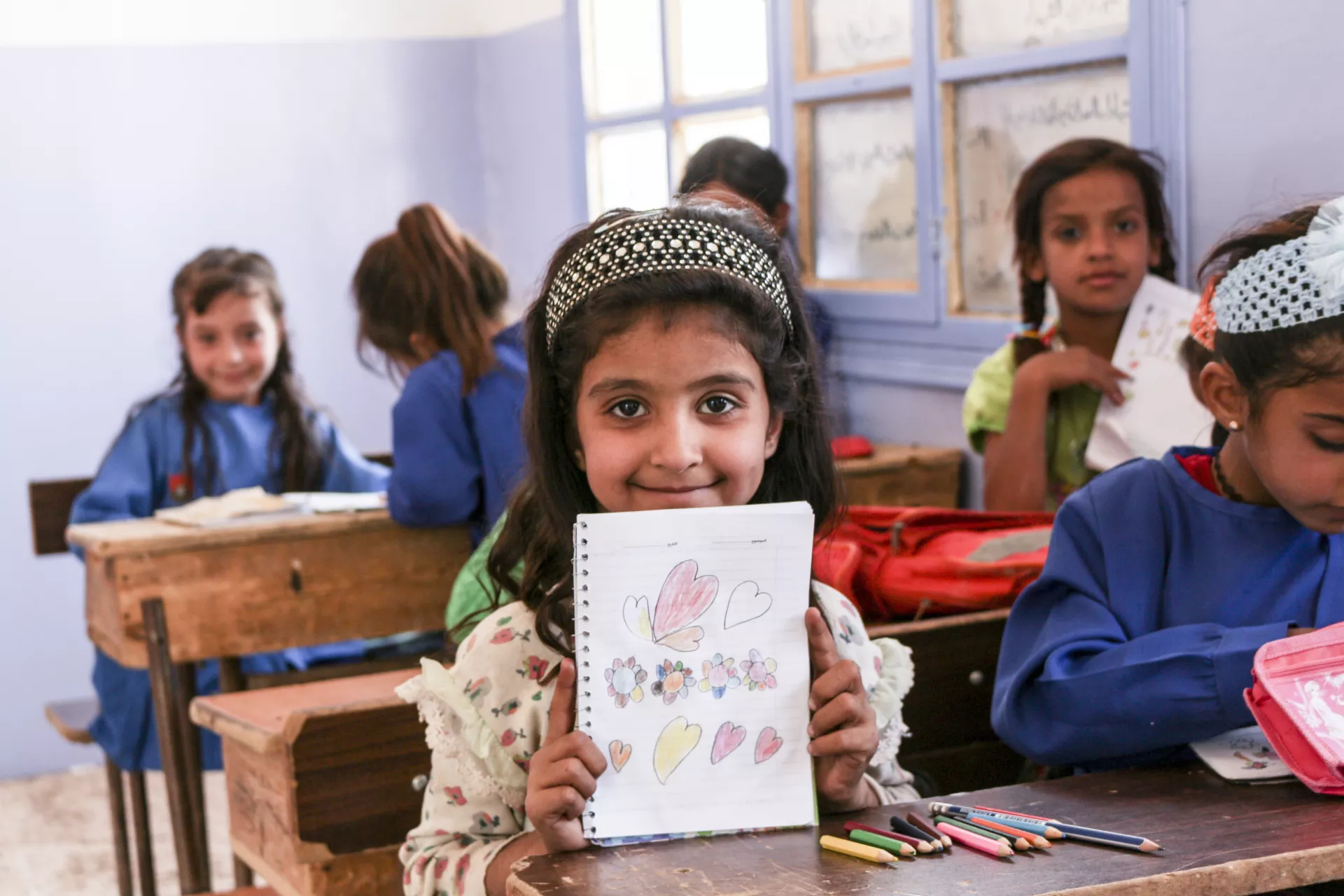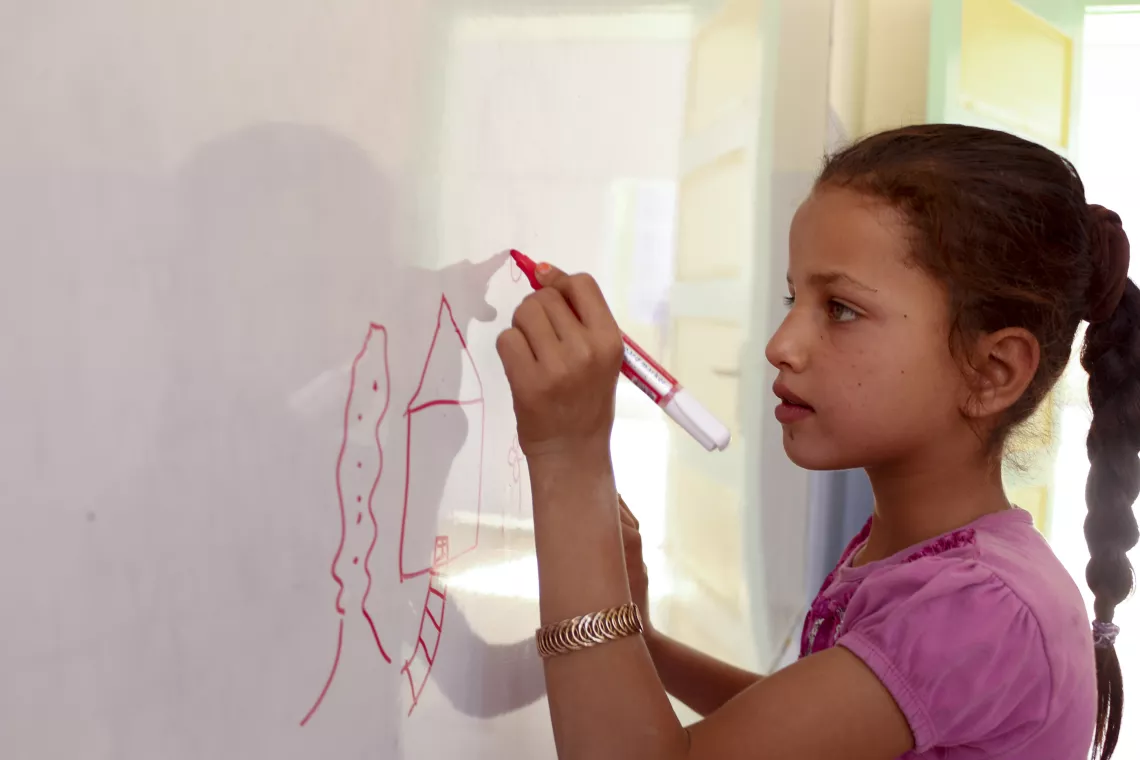UNICEF supports children go back to learning
More than 600 children resumed their education through the rehabilitation of three conflict-damaged schools, including 29 classrooms.

UNICEF supports children in rural Qamishli and Al-Hasakeh to go back to learning More than eight years of fighting have impacted the education infrastructure across Syria, threatening children’s prospects of a better future. With more than one in three schools damaged or destroyed and 2.1 million children estimated to be out school in Syria, every child’s right to education should be protected. Following a respite in violence and to support children in rural Qamishli and Tal Hamees, northeast rural Al-Hasakeh, resume their learning with the beginning of the school year, UNICEF has helped children access a safe learning environment through school rehabilitation.


“I wake up to school every day dreaming of becoming an engineer,”

The rehabilitation works included the installation of doors, windows and boards as well as painting walls and ceilings of classrooms. Water and sanitation facilities in the schools have been maintained and new latrine units were provided. “Coming to school is more exciting now after the rehabilitation! And I get to learn interesting things every day while I enjoy my new classroom,” says, Moafak, 10 years old, who attends grade 4 at in a school at Abu Zweil town, south rural Qamishli, Syria. “The best thing that I’ve learned in school was to respect people older than me and to be patient with those younger than I am,” adds Moafak, who dreams of becoming physician in the future.

“Coming to school is more exciting now after the rehabilitation! And I get to learn interesting things every day while I enjoy my new classroom,”



“I love the new classrooms! They’re very clean, comfortable and the boards are easy to write on,”


With thanks to a generous contribution from Norway, UNICEF has supported more than 600 children, from grades 1 to 9 in rural Qamishli and northeast rural Al-Hasakeh, to safely resume their education with the beginning of this school year, through the rehabilitation of three conflict-damaged schools, including 29 classrooms.




